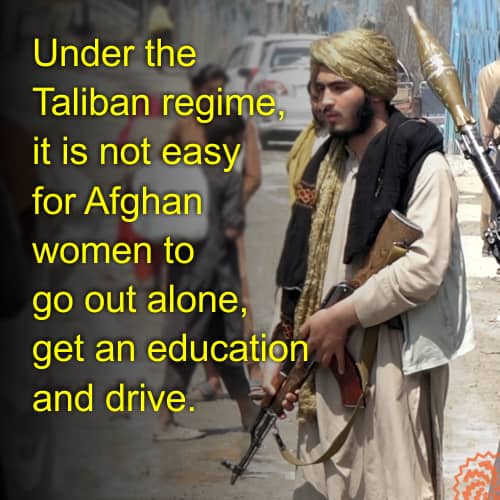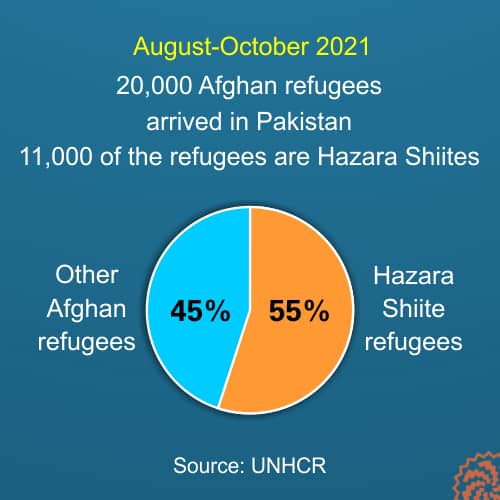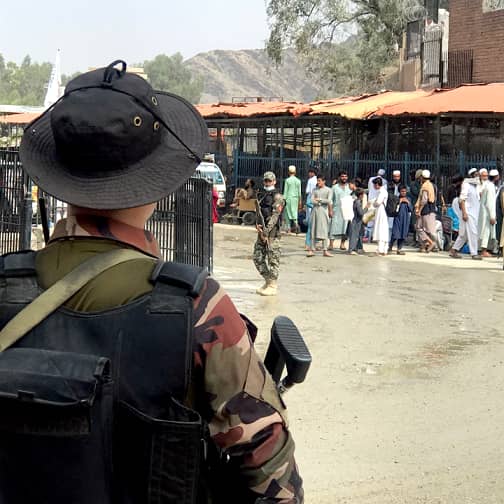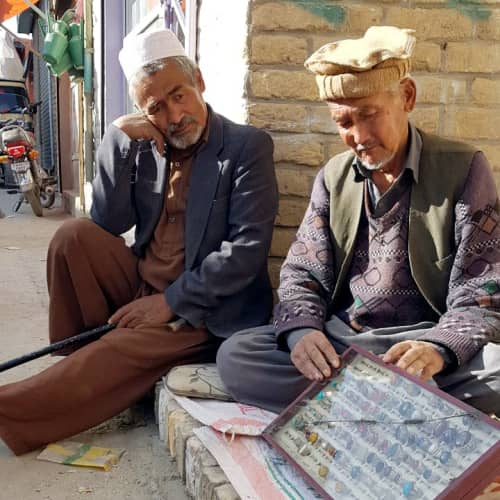Nadia Fehmi was working as a data entry manager at the Afghan Ministry of Finance in Kabul on 15th August, 2021 when she heard about Taliban having taken over the government. Caught by surprise, she left her office and rushed back home.
She, nevertheless, went back to work a few days later after the Taliban announced that the government employees could resume their duties. But the Taliban officials deputed at her department did not let her enter the office. They told her categorically that women were no longer permitted to do jobs.
Nadia, 35, belongs to the minority Shia Hazara community. She got a bachelor’s degree in business administration from Afghanistan and then did her masters in the same subject from India. The previous government of Ashraf Ghani, she says, had a number of flaws but “our life was going well and my three daughters were receiving quality education without any fear.”
Before the Taliban takeover, she did not wear a burqa and drove her own car to travel between her home and office and to carry out other household and leisurely activities. She also used to shop alone in the markets. The Taliban, on the contrary, issued an order soon after they took over power that women should not leave their homes without covering their bodies completely. They were also barred from driving and were even restricted from going to bazaars without being accompanied by a male family member.
For Nadia it was a déjà vu of the Taliban policies she had experienced when they previously ruled Afghanistan between 1996 and 2001. She felt herself being dragged back to the days of her childhood when the Taliban had restrained women from going to educational institutions -- let alone doing jobs at government and private offices. So, she decided that she will not allow such a “dark time” haunt her daughters’ childhood.

The only way for her to get out of this situation, however, was to leave her motherland. She, therefore, migrated to Pakistan at the end of August 2021 along with her husband and daughters.
Since then she has been living with her relatives in Hazara Town in Quetta, the capital of south-western Balochistan province.
In Pakistan, she feels relatively secure but, at the same time, she is always obsessed by the fear that Pakistani authorities might apprehend her and deport her to Afghanistan. This, indeed, is the reason why she mostly remains confined to her residence (and also why her real name is not being revealed in this report).
Why are Hazara leaving Afghanistan?
Nadia’s 45-year-old husband is a physician by training. Before the Taliban took over Afghanistan, he was working with a Kabul-based organisation funded by the United States Agency for International Development (USAID). Because of the fact that people in his neighbourhood knew about his job, he would live in a constant fear that they might inform the Taliban about him. The reason behind this fear was that, soon after coming to power, Taliban started a hectic search for those who had been associated with the United States.
Apart from being the employee of a company linked to the United States, he says, “I am liable to be punished for having committed two more crimes since my birth: firstly, I am a Hazara and secondly, I am a Shia.” (Most of the Taliban, on the other hand, are Pashtuns who follow Sunni Islam).
The Afghan Taliban have apparently announced a general amnesty but in practice the situation in Afghanistan is altogether different, he says. In his home-province, Daykundi, they are forcibly evicting Shia Hazara families from their homes and are occupying their lands – only due to sectarian and ethnic reasons.
The Human Rights Watch (HRW), a New York-based international human rights organisation, endorses what Nadia’s spouse says. The Afghan Taliban have forced hundreds of Shia Hazara families to flee their homes in recent weeks, it says.

Similarly, Amnesty International, an international non-governmental organisation focused on human rights, has reported that the Taliban fighters killed nine Hazaras after occupying Afghanistan’s Ghazni province in July 2021.
In the meanwhile, Daesh, a militant religious group that follows a Salafi jihadist doctrine, has also started attacking Shia Hazaras. In the latest instance of such attacks, it killed at least 100 members of the Hazara community in two consecutive Friday bombings at mosques in the Afghan cities of Kunduz and Kandahar last month.
Nadia’s family faced similar threats.
During the first week of Kabul’s fall to Taliban, her husband remained in hiding. Later, he and his family covered a 10-hour journey in a bus to reach Afghanistan’s eastern city Kandahar wherefrom they travelled to Chaman border crossing on Pakistan-Afghan border.
Their first attempt to cross into Pakistani territory did not succeed. Pakistani border officials told them that refugees have been banned from entering Pakistan. Nadia’s husband approached them again the next day and showed them her medical documents. He told them that he did not want to enter Pakistan as a refugee but to get his wife treated. It was on this basis that he and his family were allowed to enter Pakistan.
But even after making it to Quetta, he could not rid himself of the fear that they can be declared refugees and repatriated to Afghanistan. This explains why he is mostly confined to his residence.
Refugees are not welcome
Pakistan’s National Security Adviser Moeed Yousaf told international news media in September 2021 that Pakistan could not afford to host Afghan refugees due to its fragile economy and other internal issues. In the backdrop of his statement, Pakistani authorities have sent hundreds of Afghan refugees back to Afghanistan.
An official of Quetta’s district administration confides to Sujag that as many as 1,400 Afghan refugees have been repatriated to Afghanistan just through Chaman and Badini border crossings in Balochistan.
Also Read

Torkham border: Taliban takeover in Afghanistan is hampering cross-border movement of people and goods
On the other hand, Qaisar Afridi, spokesman for the United Nations High Commissioner for Refugees (UNHCR) in Pakistan, says that 20,000 Afghans have crossed into Pakistan, mostly through Chaman border crossing, between 15th August and the last week of October. Around 11,000 of them, he says, are Shia Hazaras.
The residents of Quetta’s Hazara localities of Marriabad and Hazara Town confirm that hundreds of Shia Hazara families came to Pakistan from Afghanistan in the last three months. Initially, they took refuge at worship places but later either their Pakistani relatives took them home or they shifted to rented houses.
Nadia’s family is among the former group.
Her husband says they do not want to be a burden on Pakistan because they realize that it has already accommodated over 3 million Afghan refugees. “We don’t have any intention of staying in Pakistan permanently. It is just a stopover in our journey to the United States,” he says.
He claims to have arranged all the documents required to obtain an American visa. So, he requests the Pakistani government to “let us stay in Quetta and not deport us to Afghanistan until our visas are approved.”
Published on 15 Nov 2021



















